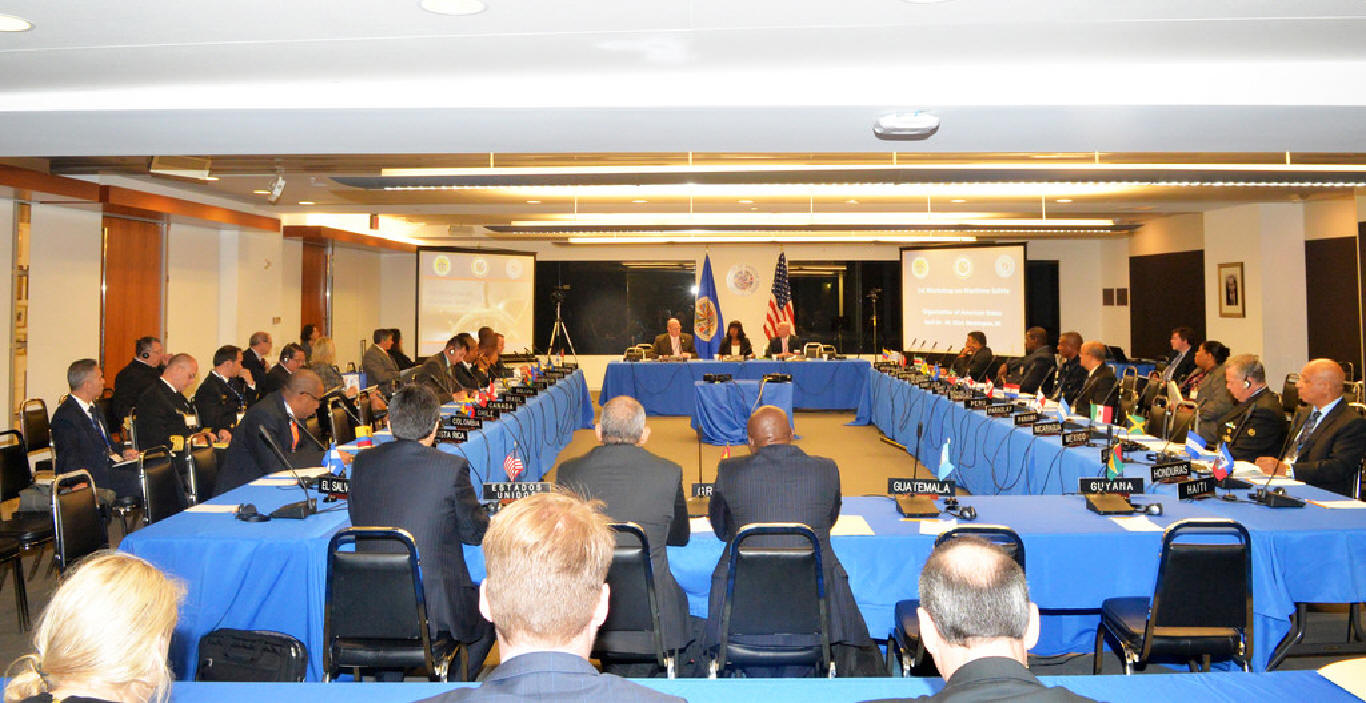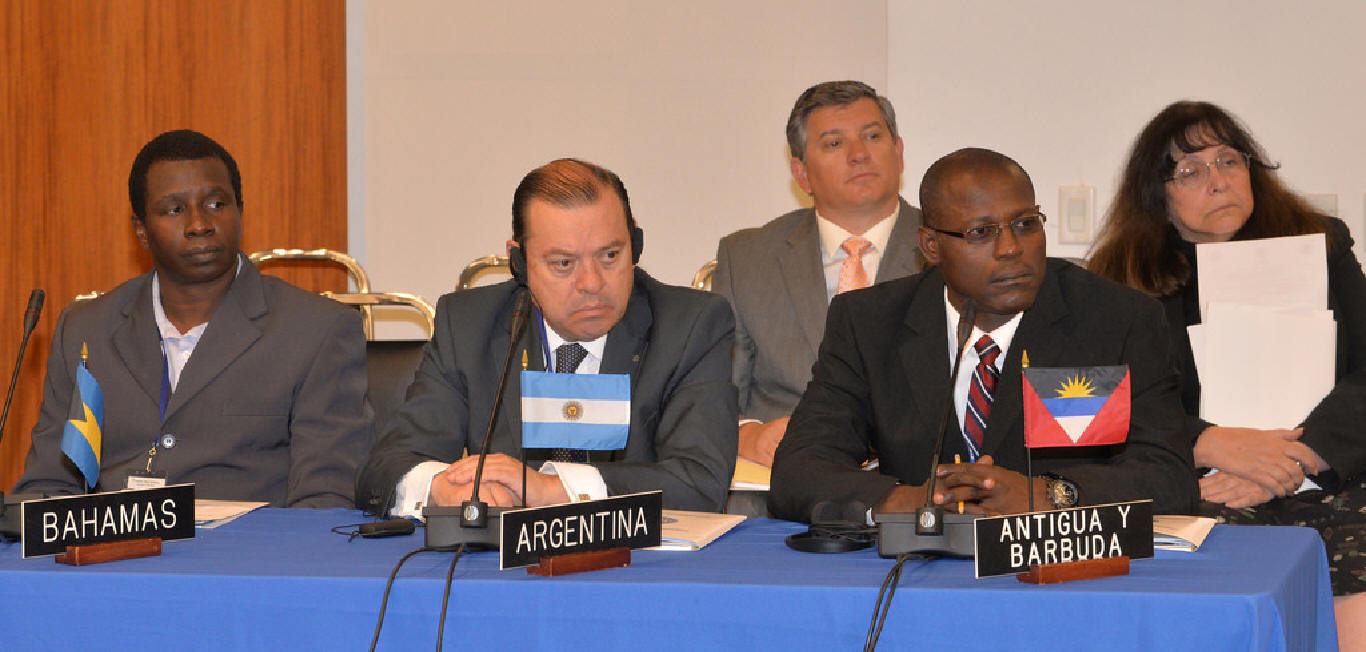OAS-CIP Helps Strengthen Maritime and Port Safety in the Region

“With more than 80% of goods worldwide making their way through
ports, the development of a safe, sustainable, and competitive
maritime and port sectors in the Americas has the potential of
having a direct impact on trade and on the socio-economic
development of OAS member states” declared Sherry Tross, Executive
Secretary for Integral Development at the launch of the First
Maritime Safety Workshop held from April 28 to 30, 2014 at OAS
headquarters in Washington, DC.
Port Authorities from 18 countries participated in two and a half
days of training on the implementation of maritime safety measures,
while sharing successful practices with counterparts and experts
from the private sector and academia. The workshop was organized by
the OAS Secretariat of the
Inter-American Committee on Ports (CIP) in collaboration with
the Office of International Activities of the U.S. Maritime
Administration (MARAD) and the Permanent Mission of the United
States to the OAS. .
 Maritime
and port safety has direct human, economic and environmental
implications that transcend this sector, affecting communities as a
whole. Experience shows that an accident in a port due to inadequate
safety measures or procedures might result in physical harm to
workers and passengers, a loss of productivity, and increased
operational costs. Alternatively, an accident at sea may result in
an oil spill with significant monetary and environmental
consequences.
Maritime
and port safety has direct human, economic and environmental
implications that transcend this sector, affecting communities as a
whole. Experience shows that an accident in a port due to inadequate
safety measures or procedures might result in physical harm to
workers and passengers, a loss of productivity, and increased
operational costs. Alternatively, an accident at sea may result in
an oil spill with significant monetary and environmental
consequences.
In discussing recent disasters like the notorious incident in South
Korea and others, Paul Jaenichen, Acting Administrator for MARAD
recognized that “whether there are different causes for each of
these events, they all have one thing in common – each of them was
preventable.” Mr. Jaenichen continued by noting that “a healthy
maritime safety culture and sufficient operational safety rules and
standards could have prevented these and many other accidents and
the loss of life is regrettable. OAS understands that, and this is
why we are gathered here today - to contribute to a safe, secure and
environmentally friendly maritime mode.”
|
“This was indeed a most productive workshop
in that it has enhanced my knowledge by
grasping the factors that drive best practices
in Maritime Safety and the Environment. The
presentations were well researched and of the
highest quality.”

Curtis Port Operations Manager,
Antigua and Barbuda
Port Authority
|
The workshop served to advance shared objectives by the CIP and the
Caribbean Basin Security Initiative (CBSI). On the one hand, port
protection and safety was identified as a priority area by member
states at the last CIP meeting in 2013. On the other, the CBSI -
launched in response to President Obama’s speech at the 2009 Summit
of the Americas - seeks to strengthen cooperation in the area of
regional security to address common and related challenges.
At the event, the Delegation of Barbados recognized the need for
increased collaboration in this area and proposed to create a
regional Caribbean framework for port and maritime safety with
assistance from the CIP Secretariat that was unanimously supported.
A proposal is being drafted and will be presented to the CIP and its
authorities during its Ninth Meeting to be held in June 2014 at OAS
Headquarters.
Participants at the workshop expressed their interest to the CIP-OAS
for additional training in this area. Port officials noted that in
practice, the workshops are train-the-trainer activities, allowing
them to share knowledge in their home countries and generating a
multiplier effect that is helping strengthen institutional
capacities and is creating a community of port security and safety
officials in the region.
» Back to newsletter

